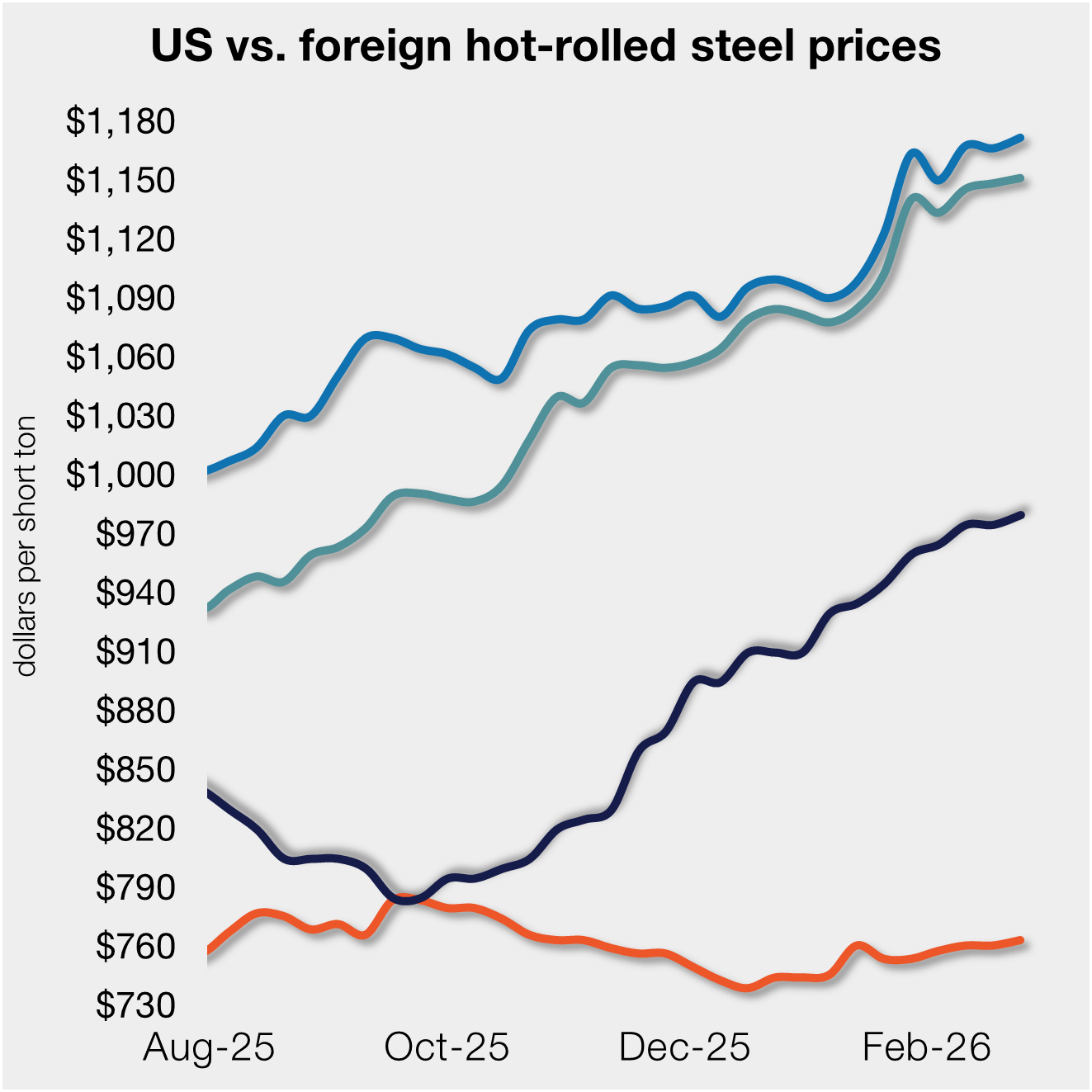Overseas

June 13, 2025
Export scrap market remains subdued
Written by Stephen Miller
There has not been a US sale of scrap to Turkey that has been reported since a sale on May 20.
The US export market looked promising in mid-May as prices in Turkey rallied off the bottom, peaking at $347 per metric ton (mt) for HMS 80/20 in Europe. This followed a previous purchase from the US at the same number.
Exporters felt the US price would have to move up to the theoretical premium for US cargoes. But it turned out to just be a theory.
There have been several sales originating in Europe over the last three weeks at descending prices. We’re down to $336.50/mt CFR, most recently.
Given this price in Europe, US exporters cannot expect a price above $341/mt for HMS and $361/mt ($367 per gross ton) for shredded. This is assuming the European export market for shipment to Turkey does not further erode.
This price for shredded scrap is unlikely to attract much interest from US export terminals.
Domestic prices for May are averaging $380/gt delivered. Even with a rail freight to interior mills of $30/gt, the domestic price is still around $20-25 per gt better on an FOB shipping point basis.
What can the export community in North America expect for prices in the months ahead as Turkey struggles with a stubbornly static rebar market?
Geopolitically, if a full-blown Israeli-Iran War develops, it will have some effect on Turkey, but it cannot be assessed quite yet.
Economically, there are some hard facts to be confronted by the scrap-exporting communities that rely on Turkey. Among them are scrap excesses in the European and Canadian markets, weakness in the international billet market and rebar trade (US exempted), and currency fluctuations.
East Coast
SMU spoke with an East Coast exporter about what to expect for the transatlantic scrap trade. He did not indicate a positive scenario.
He said a large Turkish steelmaker has bought 200,000 mt of Chinese billets for delivery during September and October at a price $465/mt CFR. Needless to say, this will limit their scrap purchases.
In order for scrap to be competitive with billets at this price, HMS 80/20 would have to be below $320/mt CFR. Assuming other mills have placed similar orders for billets, this does not paint a pretty picture for export demand.
West Coast
On the West Coast, there is limited action.
The container trade is mainly for Taiwan. But, like other countries in East and Southeast Asia, Taiwan has been impacted by cheap Chinese export activities throughout the region.
The prices for containerized HMS 80/20 from the US ranged from $300-310/mt CFR CY Taiwan, which is only a slight improvement from levels 30-60 days ago.
Bulk shipments are mainly for the South Asian countries of India and Bangladesh. Those prices are low as well, averaging $345-50/mt CFR for HMS.
Editor’s Note: An earlier version of this story listed the price for HMS 80/20 incorrectly in this sentence: “In order for scrap to be competitive with billets at this price, HMS 80/20 would have to be below $520/mt CFR.” A $320/mt CFR price represents the correct figure.







